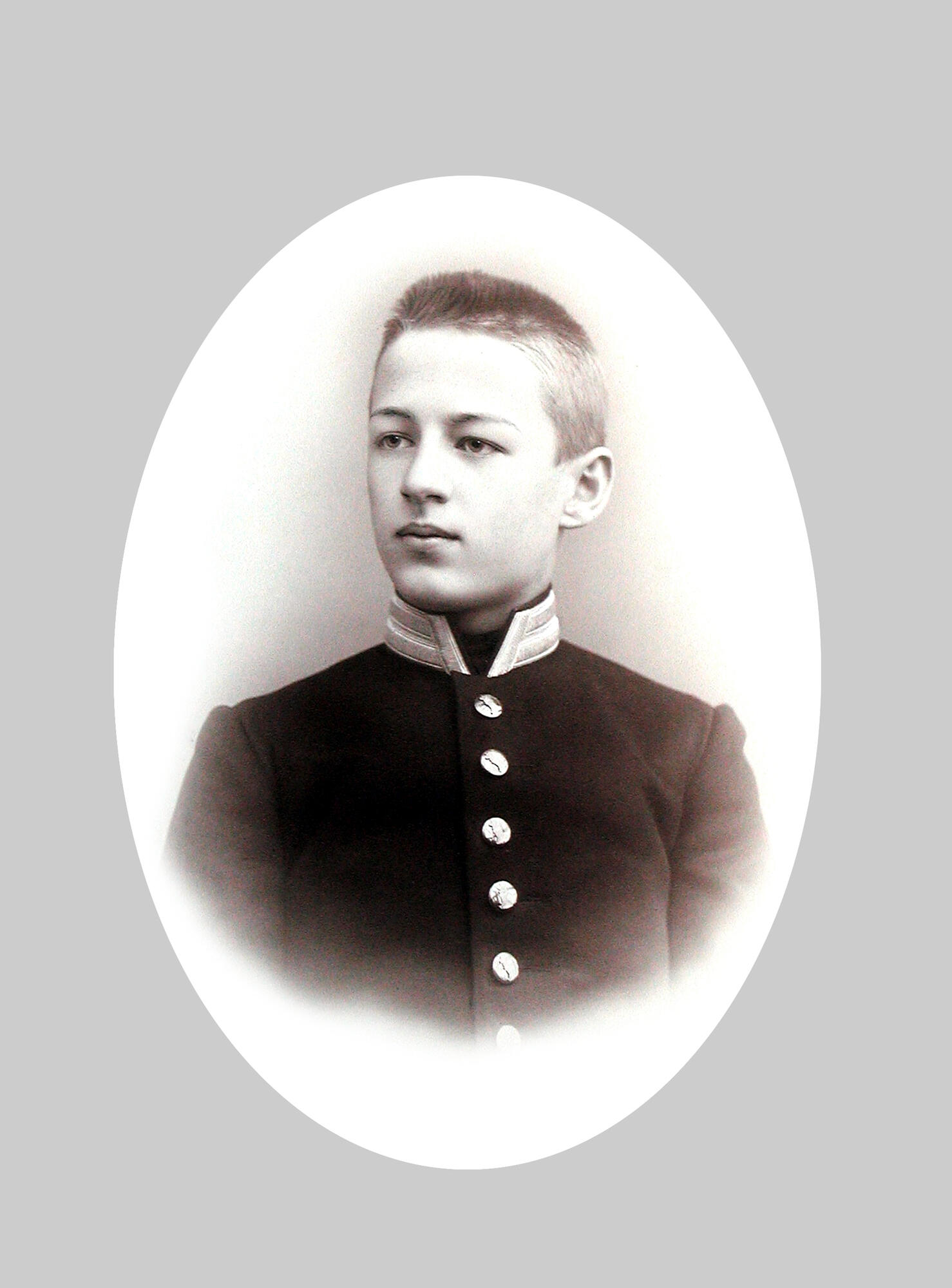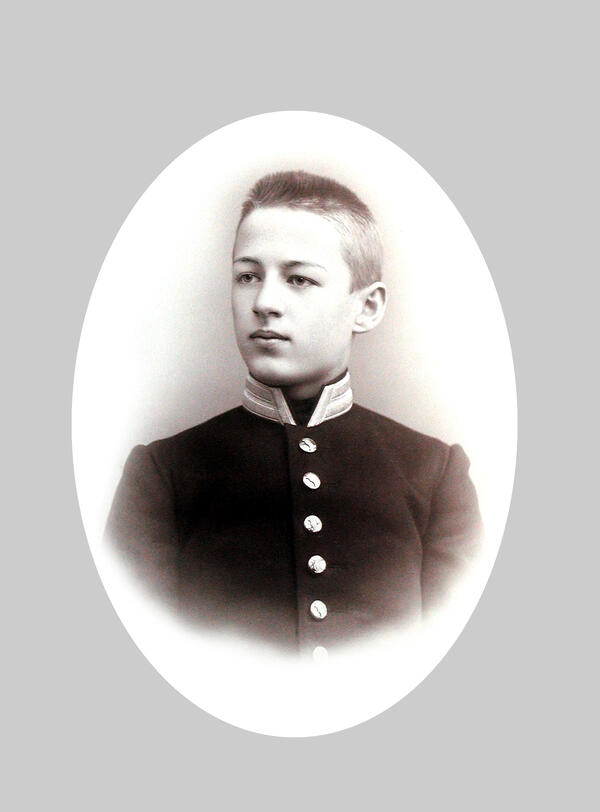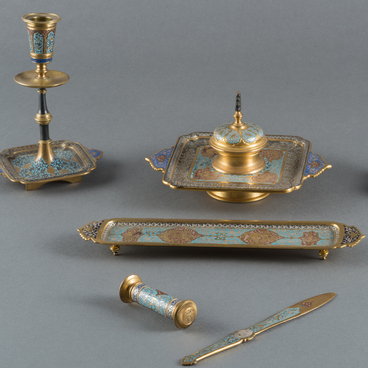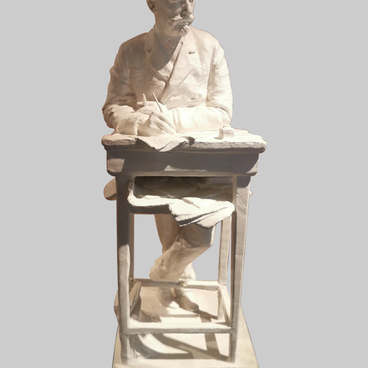This photograph was taken in St. Petersburg in the second half of the 1880s. It captures Vladimir Davydov — Pyotr Tchaikovsky’s nephew. He was a son of the composer’s younger sister, Alexandra.
When the boy was born, all relatives were surprised at just how much he resembled his uncle. Vladimir’s mother mentioned it in her letters to Tchaikovsky: “Vladimir does resemble you and I am very happy about it”. The young boy was very sociable and charming. The family called him “baby”, but he couldn’t pronounce the word, so he just said ‘bob’. This nickname stuck with Vladimir for his whole life. In his letters to family members, Pyotr Tchaikovsky sometimes referred to him as the ‘charming Bobby’.
The composer treated Bob like his own son and taught him how to play the piano himself. When Vladimir was six years old, the composer dedicated his Children’s Album to the boy: he created a series of 24 easy piano pieces designed for young musicians. He also dedicated his Symphony No. 6 to his beloved nephew. Tchaikovsky later made Vladimir his main heir, leaving him a bulk of author’s rights for his works.
When he grew up, Vladimir Davydov became a lieutenant of the sovereign’s guard of the Preobrazhensky Regiment and was in charge of its choir, which was rightfully very popular at the time. He was also very fond of painting. Vladimir became very attached to his famous uncle. On the night of the composer’s death, he was one of the people standing beside his bed. After that tragic event, he was actively involved in creating the museum in Klin, together with Modest Tchaikovsky.
Tchaikovsky always loved visiting the Davydovs. He also loved his younger sister, Vladimir’s mother, and called her a “perfect, wonderful woman”. The Davydovs lived in Kiev Governorate, in the Kamenka family estate. Today it is home to the Kamensky Literary and Memorial Museum. The estate has always been quite popular: at one point, Alexander Pushkin stayed there, and it also hosted meetings of the Southern Society of Decembrists. Vladimir Davydov’s grandfather was a famous Decembrist. After the 1825 Decembrist revolt, he was sent into exile to Siberia and his spouse followed him — that’s where Vladimir’s father was born.
When the boy was born, all relatives were surprised at just how much he resembled his uncle. Vladimir’s mother mentioned it in her letters to Tchaikovsky: “Vladimir does resemble you and I am very happy about it”. The young boy was very sociable and charming. The family called him “baby”, but he couldn’t pronounce the word, so he just said ‘bob’. This nickname stuck with Vladimir for his whole life. In his letters to family members, Pyotr Tchaikovsky sometimes referred to him as the ‘charming Bobby’.
The composer treated Bob like his own son and taught him how to play the piano himself. When Vladimir was six years old, the composer dedicated his Children’s Album to the boy: he created a series of 24 easy piano pieces designed for young musicians. He also dedicated his Symphony No. 6 to his beloved nephew. Tchaikovsky later made Vladimir his main heir, leaving him a bulk of author’s rights for his works.
When he grew up, Vladimir Davydov became a lieutenant of the sovereign’s guard of the Preobrazhensky Regiment and was in charge of its choir, which was rightfully very popular at the time. He was also very fond of painting. Vladimir became very attached to his famous uncle. On the night of the composer’s death, he was one of the people standing beside his bed. After that tragic event, he was actively involved in creating the museum in Klin, together with Modest Tchaikovsky.
Tchaikovsky always loved visiting the Davydovs. He also loved his younger sister, Vladimir’s mother, and called her a “perfect, wonderful woman”. The Davydovs lived in Kiev Governorate, in the Kamenka family estate. Today it is home to the Kamensky Literary and Memorial Museum. The estate has always been quite popular: at one point, Alexander Pushkin stayed there, and it also hosted meetings of the Southern Society of Decembrists. Vladimir Davydov’s grandfather was a famous Decembrist. After the 1825 Decembrist revolt, he was sent into exile to Siberia and his spouse followed him — that’s where Vladimir’s father was born.



